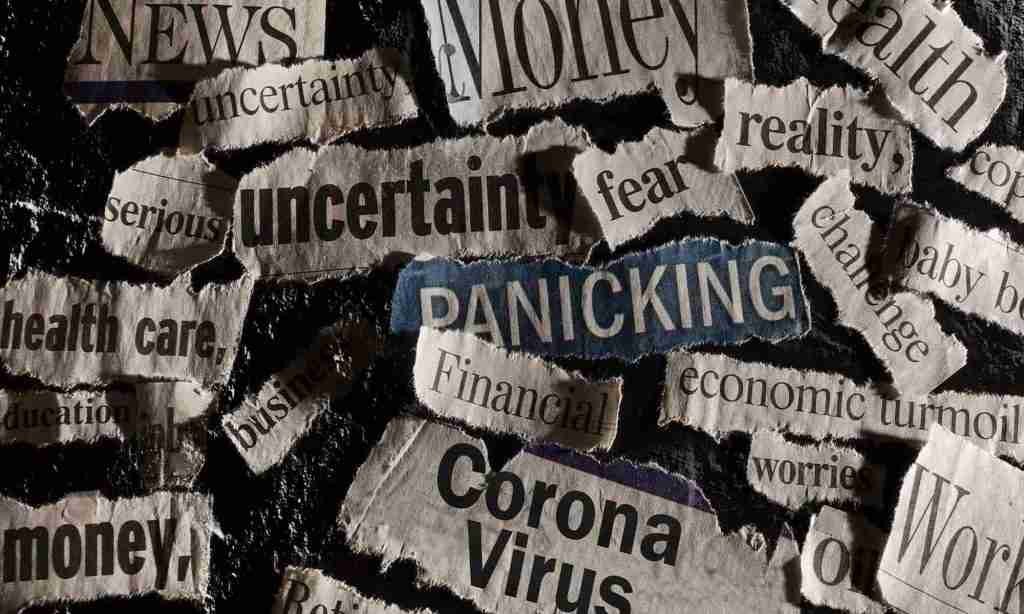What is Self-Destruction
Self-destruction is a complex and multifaceted phenomenon characterized by behaviors that lead to harm to oneself, whether emotionally, mentally, or physically. It can manifest in various forms, including self-harm, substance abuse, and engagement in toxic relationships. Emotional self-destruction often involves negative self-talk, a diminished sense of self-worth, and an inclination to sabotage one’s own happiness or success. These behaviors may be rooted in deeper psychological issues such as anxiety, depression, or trauma, leading the individual into a cycle of self-defeating actions.
Physical self-destruction can take several forms, including substance abuse, neglecting one’s health, or engaging in dangerous activities. Individuals who engage in such behavior may experience temporary relief or escape from their problems, but ultimately, these actions can lead to severe long-term consequences, including health deterioration and relationship breakdowns. Additionally, psychological self-destructive behaviors encompass thought patterns that perpetuate negative feelings and self-perceptions, often resulting in chronic emotional pain and isolation.
The implications of self-destructive behaviors extend beyond the individual, affecting personal goals and relationships. Such actions can strain interpersonal connections, leading to loneliness and further emotional distress. Individuals may find themselves pushed away from friends and family due to their harmful choices or negative attitudes. This not only exacerbates the cycle of self-destruction but also hinders personal growth and the achievement of life aspirations. Recognizing self-destruction for what it is—a maladaptive coping mechanism—is crucial for developing healthier ways to deal with pain and adversity.
Causes of Self-Destructive Behavior
Self-destructive behavior can stem from various complex factors. Trauma, especially during formative years, is a significant cause. Individuals who experience abuse are more likely to engage in self-harm or other self-destructive actions as a means of coping with their pain. Such experiences can create deep psychological scars that manifest in maladaptive behaviors throughout life.
Mental health disorders also play a critical role in self-destructive behaviors. Conditions like depression, anxiety, and borderline personality disorder can fuel feelings of worthlessness, leading individuals to harm themselves as a misguided way to express their inner turmoil. These disorders can impair judgment and decision-making, increasing the likelihood of harmful actions. Societal influences contribute significantly to self-destructive tendencies. Cultural norms and societal pressures can pressure individuals into conforming, leading them to engage in behaviors that conflict with their true selves. For instance, the pursuit of perfection in social media contexts may drive individuals to engage in unhealthy habits as they attempt to meet unrealistic expectations. Additionally, a lack of social support can exacerbate feelings of isolation and hopelessness, leading individuals to turn to self-destructive behaviors for solace.
Finally, personality traits play a pivotal role in self-destruction. Individuals with high levels of impulsivity or low self-esteem may be more prone to engage in harmful behaviors as a way to cope with their negative self-perception. Childhood experiences, including neglect or instability in the home environment, can further entrench these personality traits, making self-destructive patterns more likely to emerge.
Consequences of Self-Destruction
Self-destructive behaviors can have profound implications on various aspects of an individual’s life. These actions often manifest through harmful habits such as substance abuse, self-sabotage, or reckless decision-making, leading to significant mental and physical health challenges. For instance, engaging in excessive alcohol consumption may not only impair cognitive functions but also precipitate a range of psychological disorders like depression and anxiety. Such consequences illustrate the interconnected nature of mental well-being and physical health, as neglecting one often exacerbates the other.
Furthermore, self-destructive tendencies can severely strain personal relationships. When individuals prioritize harmful behaviors over their connections with loved ones, it can result in feelings of isolation and resentment. Friends and family may feel helpless, prompting them to withdraw or even sever ties, which inadvertently reinforces the cycle of self-destruction. This isolation can pave the way for a sense of guilt and shame, further entrenching individuals in their negative patterns of behavior. Real-life testimonials highlight how this cycle can lead to devastating outcomes—for example, a person who routinely engages in self-harm may perceive their actions as a form of relief, yet it concurrently deteriorates their support network, leaving them feeling even more trapped and desolate.
In addition to affecting personal relationships, self-destructive behaviors also hinder one’s overall quality of life and personal growth. When individuals are caught in this cycle, their focus often shifts away from meaningful pursuits and personal development, leading to unfulfilled potential. Over time, this can foster a profound sense of stagnation and dissatisfaction, ultimately impacting all facets of life. Subsequently, recognizing the far-reaching consequences of self-destruction is essential for fostering change and promoting mental health, as the path to recovery often begins with acknowledging the depth of the impact these behaviors can have.
Breaking the Cycle: Strategies for Recovery
Overcoming self-destructive tendencies requires a multifaceted approach that encompasses both therapeutic interventions and self-help techniques. One of the most effective therapeutic options available is cognitive-behavioral therapy (CBT). This evidence-based practice helps individuals identify and challenge negative thought patterns that contribute to their self-destructive behaviors. By focusing on changing these cognitive distortions, individuals can develop healthier coping mechanisms and improve their emotional regulation. Engaging with a trained therapist can provide personalized support and guidance, invaluable in the journey towards healing.
In addition to professional therapy, self-help strategies are crucial in breaking the cycle of self-destruction. Mindfulness practices, such as meditation and journaling, foster self-awareness and help individuals recognize triggers. Self-compassion encourages treating oneself with kindness during struggles, promoting resilience and emotional well-being.
Support systems are also vital. Connections with friends, family, or support groups provide emotional encouragement and accountability. Sharing experiences with others who understand self-destruction can alleviate isolation and foster community. Peer support offers insights and learning from others’ experiences.
Seeking professional help and engaging in therapeutic practices like CBT, along with self-help techniques and support systems, empowers individuals to break free from detrimental cycles and lead healthier, more fulfilling lives. Sometimes, the path to true growth involves letting go of your current self and embracing transformation through continuous self-reflection, personal development, and exploring new avenues for growth.
What’s More
The posts in My Blog feature reflective, story-driven pieces rooted in personal and societal insights.
The topics in My Interests explore abstract, philosophical ideas and their cultural and societal impact.
👁️ 5,765 Views
















